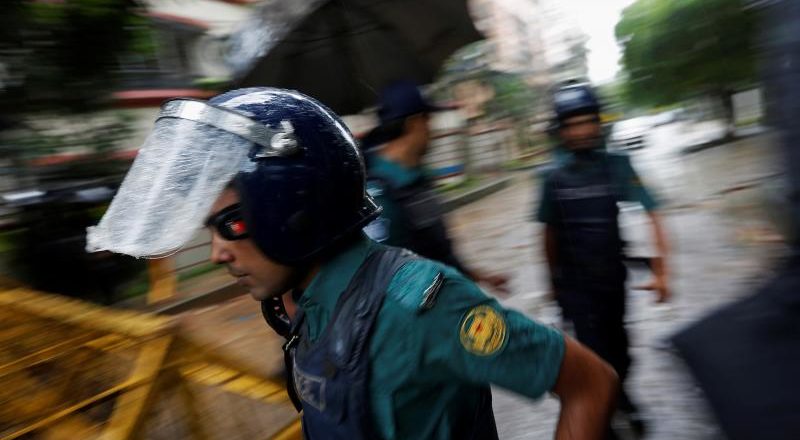A nation must think before it acts.
In the past 18 months, a series of attacks on secular bloggers, public intellectuals, Hindu and Buddhist priests, and a few foreigners has shaken Bangladesh. The Islamic State (ISIS) has claimed responsibility for much of the bloodshed. The group’s formal claim aside, it is not entirely clear whether it masterminded the attacks. What is clear, however, is that the government of Sheikh Hasina Wajed has continued to deny that the terrorist group has a presence in her country at all.
After a strike on the Holey Artisan Bakery in Dhaka’s tony Gulshan neighborhood that led to 20 deaths last week, Hasina publicly condemned the “heinous attack” and promised to stamp out terrorism in the country. However, in her 12-minute speech, she still failed to acknowledge the presence of ISIS in Bangladesh. She did at least seem to grudgingly accept that the Gulshan attack represented an escalation from what she referred to as prior “stray killings.”
Hasina’s reticence is somewhat surprising. As the leader of the largest secular party in the country, she should have few qualms about taking an unequivocal stance against rising religious zealotry. (Since 2013, extremists have killed over 30 individuals; few, if any, of the perpetrators have been brought to justice.) Instead, Hasina has passed the blame onto the principal opposition party, the Bangladesh Nationalist Party (BNP) and one of its allies, the Islamist Jamaat-i-Islami. “The BNP–Jamaat nexus has been engaged in such secret and heinous murders in various forms to destabilize the country,” she asserted. Even foreign countries aren’t free of suspicion: “The British government should take more steps on the ground. Jamaat has a strong influence in East London.”




